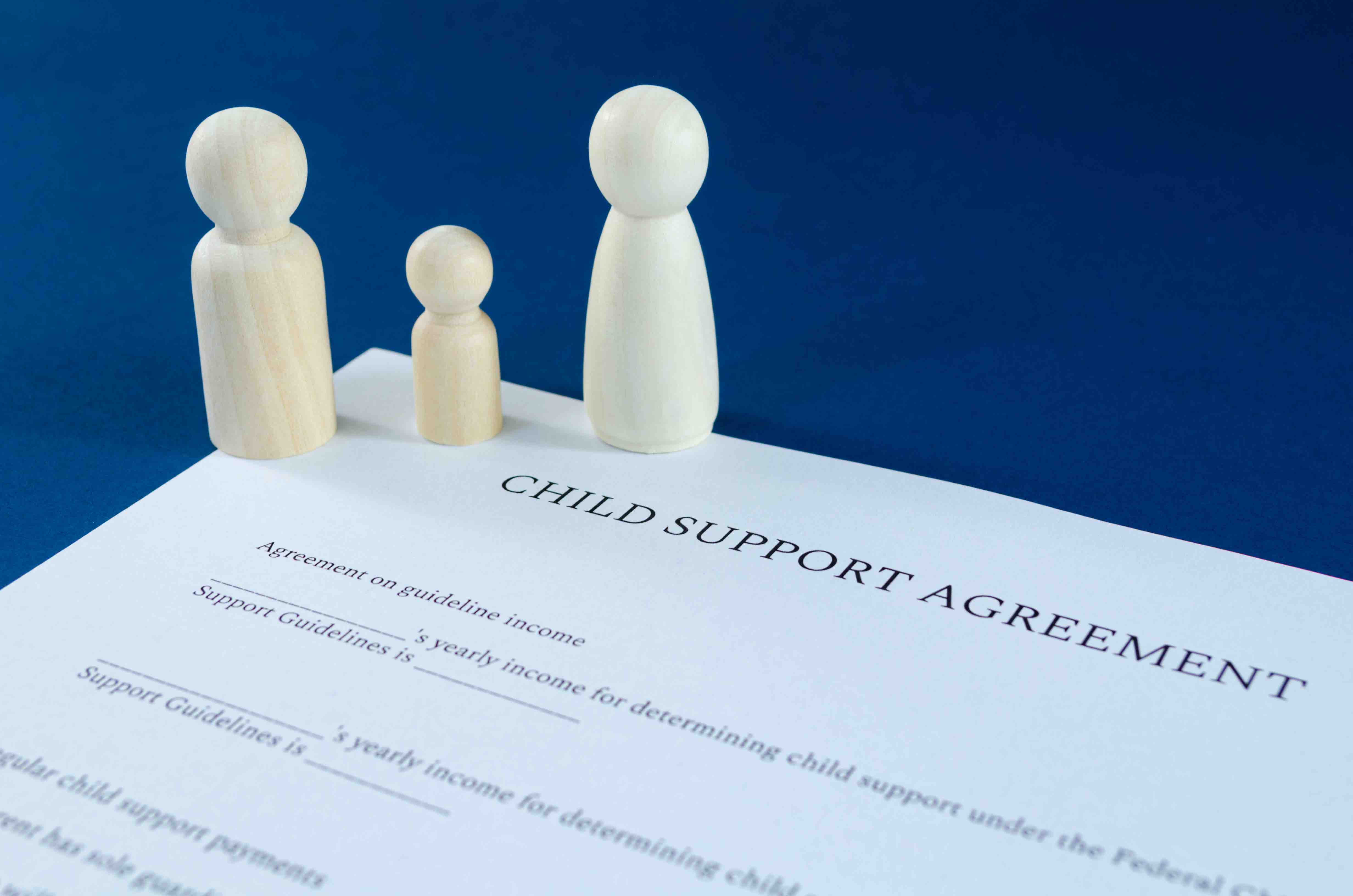News
The fate of the property market was unknown during the peak of the British lockdown, however, some national surveyors & agents are reporting their busiest June on record. We are seeing that individuals are keen to move onto the property ladder, or help their children to do so, when doing this by transferring part of your property to your child there are provisions that must be put in place in order to protect yourself & your child.
Whether this help is offered in the form of a lump sum of money or transferring part of your farm to your child, this is often done as a recognition of the years of help from your child with the family farm. Whilst not always the nicest thoughts to have, it is important to think about what could go wrong in the future. Specifically, protecting yourselves & your child from claims by your child’s unmarried partner. Even if the property is in your child’s name, their unmarried partner is still able to make a claim for a share in it if the relationship breaks down, or claim against your child’s estate if they pass away.
We have detailed our top tips to remember when gifting or loaning your child money to purchase a house, or are transferring part of your farm to them:

Loaning money
A legal charge must be put in place to secure your loan against their property. In doing so you will protect your loan in the event of a third party (such as an unmarried partner) making a claim against the property in the future.
Transferring part of your farm
A condition of the transfer should be put in place, so that your child will enter into a Cohabitation Agreement with any person that moves in with them. This agreement will protect your child against any claims made against their property or estate. If your child plans to marry they may also want to consider a prenuptial agreement.
Child & partner moving onto your farm
Again, we suggest a Cohabitation Agreement but this time between you, your child & their partner. This agreement will outline the conditions of their occupation of the farm. If your child & their partner are working on the farm, you should discuss remuneration & their expectations for the future.
All of the tips above do require legal help that will ensure each condition is put in place successfully, thus protecting you & your child in the future. We are experienced in working with agricultural matters as well as loaning any sum of money.
Please click here to get in touch with us.
A survey by YouGov has revealed that 34% of British adults would be less likely to begin divorce proceedings during the current Coronavirus pandemic. With all the fears we all have around our own & our loved ones safety, putting this in jeopardy to begin divorce proceedings seems to be the last thing on many peoples minds.
Here at Linnitts we understand your concerns but also know how for many completing divorce proceedings has allowed many of our clients to move on & begin focussing on their future. Many of the necessary processes throughout a divorce can be done digitally & for the actions that can't we have intergrated strict systems within our office to allow you to visit, without the need for close contact.
You can get the ball rolling by clicking here to get in touch with us.
Below is a video of Chris Linnitt taking you through our office safety measures:
For many families preserving their wealth to be passed onto successions is of high concern, an integral element of this is designing & implementing estate planning measures. However, we often find that in doing so, many are putting their wealth at significant risk, should their adult children get divorced.
In order to help you protect your wealth across multi-generations, we have detailed the 3 main actions that you can take to do so.

Prenuptial Agreements
Often known as “pre-nups” have become synonymous with the likes of A-List celebrities, yet their use is actually very important for many. Some parents often make this arrangement a condition of a gift or advance.
Whilst there is currently no act of Parliament in England & Wales making these agreements binding, in practice they will be enforced so long as both parties freely enter into them, with full understanding of the implications. The agreement must also not lead to an outcome which leaves one party in real financial need.
These agreements will allow your children to protect the family wealth prior to marriage, they are often not implemented due to the lack of romance involved in planning a marriage breakdown before (or shortly after) a wedding. Yet the importance of them must be acknowledged & shared with your children, should you wish to make it a condition of future succession.
Postnuptial Agreements
After marriage, a “post-nup” serves the same purpose as a “pre-nup”. With the same pros & cons, these agreements are often entered due to the prior conditions or though being in place before a wedding.
Whilst this agreement will work just as well, it is often much better to discuss & enter into an agreement 28 days before a wedding. To allow for all of the details to be outlined & for the initial stage of marriage to be enjoyed.
Loan Agreements
Parents will often loan their adult child finances for a range of reasons, including property purchases. What is often missed is clear clarification that this is not a gift & is in fact a loan. Should this child then seek divorce, it is important that there is a strong & clear agreement drawn up & signed. Ideally this should be a formal loan deed drawn up by a lawyer, which sets out the sum to be loaned, the purpose of the loan & detailed repayment terms & conditions.
Whilst no one wants to enter marriage thinking about the plan should they then get divorced, in order to protect family wealth, it is often crucial for you to encourage your children to take some of the steps above.
As many are now aware, the Chancellor cut the stamp duty on homes worth up to £500,000. This has been put in place to help kick-start the housing market, which has somewhat stalled during the coronavirus crisis.
This cut will be beneficial to many but how exactly is still slightly misunderstood by the majority, in order to help we have broken down the key details below.

What is stamp duty?
Stamp duty land tax (SDLT) is the sum of money that must be paid when an individual purchases either a property or a piece of land. The quantity of the stamp duty depends on the overall price of the property/land.
Stamp duty is also contingent on the type of property/land purchased; whether it is residential, non-residential, mixed-use or whether you are a first-time buyer.
Where does stamp duty apply?
Stamp duty land tax applies to properties in England & Northern Ireland. In Scotland, Land & Buildings Transaction Tax must be paid instead. In Wales a Land Transaction Tax must be paid for sales that were completed on or after 1 April 2018.
When must stamp duty be paid by?
A stamp duty land tax return is due within 14 days of completion on a property/land, otherwise penalties & interest may be charged. Payment must be sent to HM Revenue & Customs.
How much will you save?
Stamp duty payment will no longer be required up to £500,000 during the announced holiday. This means that many will now save thousands of pounds when purchasing property/land priced £500,000 & under.
As an example first-time buyers purchasing a property for £500,000 will save £10,000 on stamp duty, as per current rates. With non-first time buyers saving £2,260 when purchasing a property for £238,000.
It is clear that the current savings are substantial enough to convince many of us that now is a good time to make the move we have been considering.
Our conveyancing team have been working throughout the current pandemic, allowing them to keep up to date with these changes. We are now working from our offices & are on hand to help you understand any changes further, as well as actioning any property/land purchase you are considering.
Please click here to get in contact with us.
Family breakdown, at any time, is a traumatic process for all involved. During these uncertain and unprecedented times the challenges and responsibilities needing to be met may seem heightened. To help give some clarification around the legal guidance for families we have created the below guide.

The challenges for many have been numerous during this time, it is important for parents to consider their Child Arrangements Orders and any other similar informal arrangements. As guidance has been changing and adapting to tackle the virus, this has in some cases become difficult for parents to do.
Whilst many parents have managed to work together to help with childcare and ensure the children still see both parents as previously arranged. The grey area comes as certain government advice seems to contradict the directions of previous arrangements. However, COVID-19 should not have in the past, present or future be used as a standalone excuse to prevent one parent from seeing their children. Similarly, it should not be used as a stand alone excuse for Orders to be breached, unless completely necessary (such as isolation or shielding).
Each individual is going to need assessment based on their individual circumstances. It is important to remember that every decision made needs to be made in the best interest of your children, whilst being able to comply with Court Orders as much as possible. Any detraction from an Order that hasn’t been consented to, will need to be clearly and fully justified and evidenced to the court. If this is not the case it may be treated as a breach of Court Order, leading to potential sanctions.
If you need to discuss your circumstances in more detail, our team are working from the office and available to help guide you.
Click here to get in touch with us.
Separate court entrances for domestic abuse victims:
An expert-led review has given way to the Ministry of Justice pledging a ‘major overhaul’ of family courts. The review generated a report that shows the risk of harm to children and parents in private law children cases, it has been said that the report highlights many long-standing failings.

One of the key findings is the fear that many mothers suffer when visiting court, that they will be confronted by their abuser. With one case detailing an attack that took place on one mother’s lawyer, despite this being reported the judge was said to have set it aside. It is important to remember that fears exist for both mothers and fathers.
With the report also highlighting how many parents were made to feel dehumanised and humiliated after reliving their abuse, to receive little signs of respect or care from judges and magistrates.
With fathers also telling the panel that they could not always afford legal representation, leaving them to conduct the case themselves, which left them feeling like a nuisance for requesting special measures.
With many more findings being reported, the Ministry have begun to give what changes will be put in place to the courts. With separate entrances and waiting rooms, as well as protective screens to shield victims from their alleged abuser in court all being announced. Judges will also be more easily able to issue barring orders preventing abusive ex-partners from repeatedly dragging their victims back to court. With presumption of ‘parental involvement’ encouraging a child’s relationship with both parents also set for review.
Now more than ever, it is not uncommon for divorcing couples to continue living within the same house throughout the divorce proceedings. With financial restrictions and family commitments making moving out off the cards until everything is finalised.
For many this can be a very challenging period and the current Government guidance on Coronavirus only adds to the complications.
One of the worries you may be experiencing is how you are going to communicate with your solicitor about your divorce with your spouse around the house. To help we have outlined the ways in which we are able to help you, should you find yourself in this situation.

Ways we can help:
- Unless we are told otherwise, no post will be sent to your home address.
- We have remained fully contactable throughout COVID-19, our team are also now back in office and so phone calls or emails will be promptly replied to.
- PPE steps have been taken to ensure safety of you and our team, and so, a face-to-face meeting can be arranged. We may also be able to offer you a quiet private office space for you to join a scheduled court hearing that is due to take place via telephone or video.
- Should you be able to and wish to, we are also able to meet with you via a video call.
- We will also speak with you to see what hours work best for you to meet with us, outside of normal working hours for telephone or video calls can be arranged. This is to help support you if you are a key worker or are needed throughout the day to homeschool and care for your children.
We understand that everyone's living situation is different, the steps above are just some of the ways our experienced team are here to support you.
Please click here to get in contact with us and discuss your situation in more detail.
As many are aware, in order to begin divorce proceedings immediately, one spouse must allege to committing adultery, unreasonable behaviour or desertion. However, this is now set to change. A bill introducing no-fault divorces in England and Wales has passed through the house of commons by 231 votes to 16 against.

The new bill, which will now be passed to royal assent, will be actionable by a statement that the marriage has broken down irretrievably. Under this new bill, couples are also able to apply for a divorce together, representing a mutual decision to divorce.
Furthermore, keywording around divorce is to be changed under the new bill, with "decree nisi" and "decree absolute" to "conditional order" and "final order". "Petitioners" will also become "applicants".
Under the bill proposals, there must be a minimum six-month period between the lodging of a petition to the divorce being made final.
This new bill is set to reduce the trauma that many may experience when filing for divorce, modernising the system and allowing a reduction in tension.
The Government have announced plans to help kick-start the UK property market by easing legislation concerning the higher rate of Stamp Duty Land Tax (SDLT) purchasers are required to pay on acquiring a second dwelling.

Whilst this comes as good news for many, many are now worried that they won’t be able to sell their current property within the current relaxed window. However, this is widely received as a welcome change to the usual SDLT protocol that saw purchasers only being refunded the higher rate of SDLT if they sold their original dwelling within three years of acquiring their new home.
This measure is being put in place largely due to the advice given again marketing properties between 26 March and 13 May 2020. Now that COVID-19 restrictions are beginning to ease, the Government are formulating ways to encourage property purchasing. This includes them currently reviewing those who are unable to sell their previous residence within three years due to “exceptional circumstances” out of their control. These exceptional circumstances will include the impact of coronavirus, as well as any action taken by a public authority that may prevent the sale of a property.
The lockdown our nation has found itself in throughout the past few months has had many effects, some of these however are not necessarily the first thing that comes to mind.

It seems that many of us have been taking the time at home as a green light to get a new pet to keep us company. As a result there has been a 50% increase in enquiries for pet friendly properties (research conducted by proptech rental service Home Made).
Pets are often not accepted by landlords due to the wear and tear that can occur as a result of accepting them, there are however benefits to accepting those with pets as they often stay much longer, as they do not need to move in order to get their desired pet.
Charging an extra pet deposit is a great way around easing your worries. There is also increased demand for rentals that also have gardens, bike storage facilities and are within close proximity to cycle lanes.








